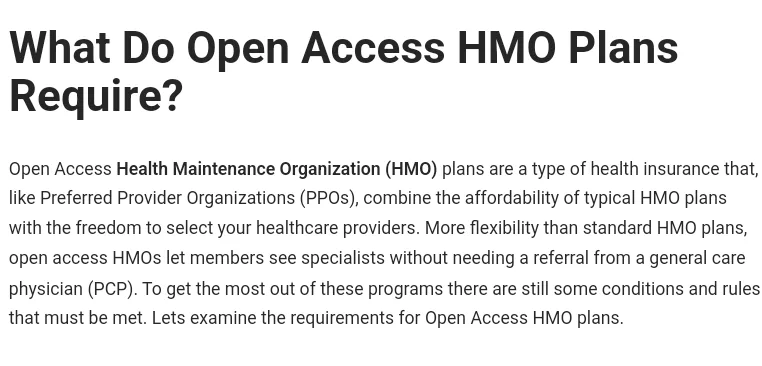Table of Contents
What is Evidence-Based Practice?
Evidence Based Practice means a systematic approach to clinical and managerial decisions that incorporates the best available research evidence with clinical expertise and patient values. It is applied in practice to ensure that healthcare practices are based on current and valid evidence with the intention of improving patient outcomes, thereby enhancing the quality of care.
The integration of the finest available scientific research, clinical knowledge, patient values and research evidence into evidence based practice (EBP) will ultimately enhance patient outcomes when practitioners apply it.
You and your patients will determine the most appropriate physical therapy treatment plan in each situation based on these three categories of evidence: scientific research, clinical knowledge, and patient values and circumstances.
These three categories of evidence will serve as the foundation for your decisions if you are an evidence-based therapist. In order to optimize the advantages that patients derive from treatment, evidence-based therapists strive to ensure that patient care is guided by the most recent research findings. EBP offers a methodical approach to considering and gathering the various forms of evidence that are utilized in clinical decision-making.
Three Pillars of Evidence-Based Practice
The three pillars of evidence based practice (EBP) interactively contribute to guarantee effective, quality healthcare.
Research Evidence
The basis of evidence-based practice (EBP) is research; this is the most current best studies that support clinical judgment. This area inlcudes systematic search action for all relevant articles, in particular, the meta analyses, randomised controlled trials and systematic reviews together with critical evaluation of them. These resources provide the best evidence to help identify the optimal interventions and treatments for specific diseases or patient groups. It ensures practices are informed by the most current robust research and provides a scientific basis for clinical decisions.
Clinical Experience
Clinical experience is the skill and experience of health professionals to apply evidence in the care of individual patients. Clinicians interpret findings of studies in the context of their practice based on knowledge and experience. Knowledge in this instance serves to bridge the gap between the individual needs of a particular patient and the universal findings presented by a study. This involves consideration of the extent to which results of research apply in natural clinical environments and ability to make judgment about tailoring specific interventions towards each patient’s particular needs .
Patient Values
The patient values are very important in EBP because they ensure that it is very crucial to make the priority of the patients their care. This element engages patients in decision-making processes that concern their care through consideration of the belief, preference, and concern of each patient.
The integration of patient values into clinical decision-making ensures that therapies not only succeed but are sensitive and responsive to the unique goals and expectations of each patient. Overall health outcomes are better in this patient-centered process of treatment adherence and patient satisfaction.
A well-informed health care decision, made possible by a complete framework combining the best available research data, clinical knowledge, and patient values, enhances the outcomes and care of a patient.
Evidence-Based Practice in Nursing

EBP in nursing is defined as a systematic approach in which the practitioner integrates patient values, professional competence, and the best available research data into clinical decision-making for effective, high-quality services that would address the particular needs and preferences of each patient based on the most recent scientific research.
How to implement Evidence-Based Practice in Nursing
To apply Evidence-Based Practice in nursing given below are the steps you need to follow:
Identify a Clinical Question. Clearly and understandably ask a question about the patient issue, selecting for a specific goal-to improve something for the benefit of their particular disease.
Search for Evidence: Use research tools to find relevant studies and guidelines of high quality.
Appraise the Available Evidence. Determine if the evidence is of good quality, valid and applies to your clinical question.
Apply the Evidence. Combine the evidence with clinical expertise and patient preferences to make a decision about the delivery of care.
Practice Implementation. Take the evidence and identify new procedures to be developed and implemented or changes to current practice. Identify education that will be needed for staff.
Evaluation of Outcomes. Track and report the effect of the new practice on overall efficiency and patient outcomes.
Share Findings: Colleagues are to be notified regarding findings and strategies found to work. Comments considered to guide further development.
By utilizing the current updated research in support of the nursing practices, this practice promotes quality patient outcome and care.
FAQs
What is Evidence-Based Practice? Definition?
Evidence-based practice means a systematic approach to clinical decision-making in which patient values, clinical competence, and the best available research data are combined. Evidence-based practice refers to the delivery of high-quality patient care based upon the most current and relevant information available to guide practice decisions and improve patient outcomes.
What is Evidence-Based Practice (EBP) in nursing?
EBP incorporates the best research data available into clinical experience and patient values to enable nurses to make informed decisions in patient care. It aims at the improvement of patient outcomes, ensuring that procedures being used are based on the latest available and relevant research.
Why is Evidence-Based Practice important in nursing?
EBP ensures safe, effective nursing care consistent with the latest research. It improves the quality of care, enhances patient outcomes, and provides evidence that clinical practice is current with scientific developments.
How to use Evidence-Based Practicein my nursing practice?
Start with a clinical question or problem you have. Then search for the relevant research findings, consider the quality of those findings, and integrate them into care considering patient’s preference and your clinical expertise. Review the outcome and refine the process according to needs.
What are some Evidence-Based Practice examples in pain management?
Pain can be treated by using multimodal analgesia, which involves multiple modes of pain management, such as using non-opioids in addition to opioids, as studies have indicated that such methods usually tend to reduce the reliance on opioids.
What is Importance of Evidence-Based Practice in Nursing?
EBP is important because it ensures that nursing care is based on the best evidence available, advancing quality care, improving patient outcomes, and maintaining practices current with the latest findings.
For more click here
For fitness tips check out this blog

Ankush Kumar is a professional content writer and the founder of Healthnick.com. He is a health and wellness enthusiast with a deep interest in nutrition, fitness and holistic living. Harish is committed to delivering research-based insights on various health topics. He enjoys exploring new trends in health, experimenting with nutritious recipes, and staying active.






